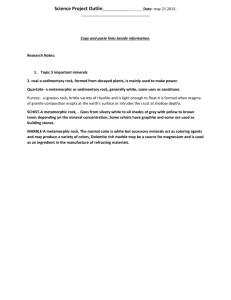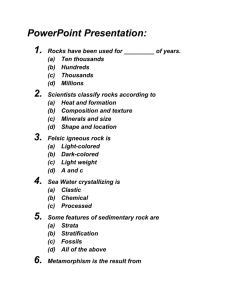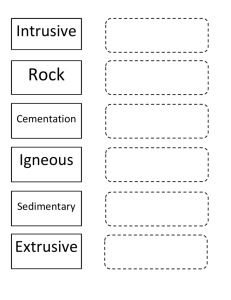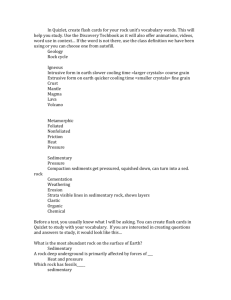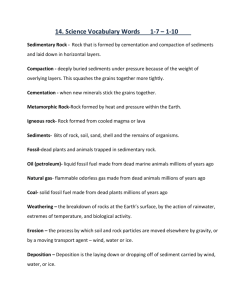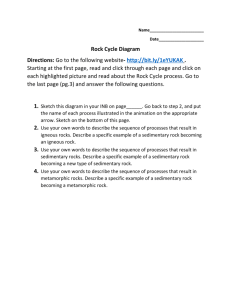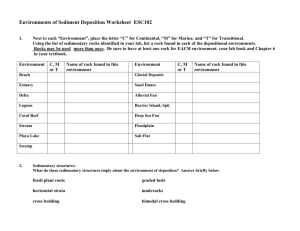Rock Cycle Study Guide
advertisement
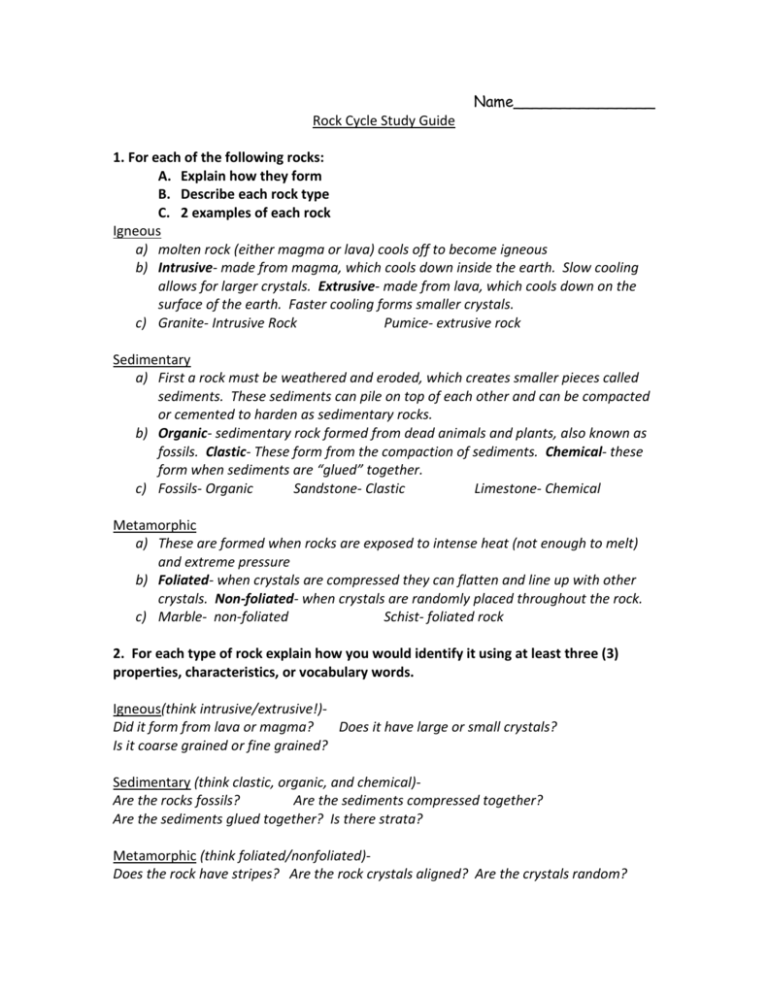
Name_______________ Rock Cycle Study Guide 1. For each of the following rocks: A. Explain how they form B. Describe each rock type C. 2 examples of each rock Igneous a) molten rock (either magma or lava) cools off to become igneous b) Intrusive- made from magma, which cools down inside the earth. Slow cooling allows for larger crystals. Extrusive- made from lava, which cools down on the surface of the earth. Faster cooling forms smaller crystals. c) Granite- Intrusive Rock Pumice- extrusive rock Sedimentary a) First a rock must be weathered and eroded, which creates smaller pieces called sediments. These sediments can pile on top of each other and can be compacted or cemented to harden as sedimentary rocks. b) Organic- sedimentary rock formed from dead animals and plants, also known as fossils. Clastic- These form from the compaction of sediments. Chemical- these form when sediments are “glued” together. c) Fossils- Organic Sandstone- Clastic Limestone- Chemical Metamorphic a) These are formed when rocks are exposed to intense heat (not enough to melt) and extreme pressure b) Foliated- when crystals are compressed they can flatten and line up with other crystals. Non-foliated- when crystals are randomly placed throughout the rock. c) Marble- non-foliated Schist- foliated rock 2. For each type of rock explain how you would identify it using at least three (3) properties, characteristics, or vocabulary words. Igneous(think intrusive/extrusive!)Did it form from lava or magma? Does it have large or small crystals? Is it coarse grained or fine grained? Sedimentary (think clastic, organic, and chemical)Are the rocks fossils? Are the sediments compressed together? Are the sediments glued together? Is there strata? Metamorphic (think foliated/nonfoliated)Does the rock have stripes? Are the rock crystals aligned? Are the crystals random? 3. Define the following vocabulary terms in your own words. Rock- made from crystals Sediment- small pieces of rocks Lava- molten rock that is on the Earth’s surface Magma- molten rock that is below the Earth’s surface Property- Characteristics Composition- What is it make-up/ what is inside/ ingredients Law of Superposition- Law that states in layers of rock, the oldest will be at the bottom and the youngest will be on the top. USE THE DIAGRAM BELOW TO ANSWER THE QUESTIONS: What is the oldest layer? Layer A What is the youngest layer? Layer E When did the fault occur? After the development of C, before D What is the most recent event/layer to take place? The inclusion was the last event Explain how each type of rock can become another Igneous to Metamorphic- possible of intrusive rock is exposed to heat and pressure. Igneous to Sedimentary- The igneous rock is weathered and eroded and the sediments get compacted together. Metamorphic to Igneous- the metamorphic rock melts and the cools Metamorphic to Sedimentary- The metamorphic rock is weathered and eroded and the sediments get compacted together Sedimentary to Igneous- the sedimentary rock melts and the cools Sedimentary to Metamorphic- sedimentary rock is exposed to heat and pressure. Diagram the rock cycle. Be sure to include the processes of melting, erosion, and heat/pressure.
